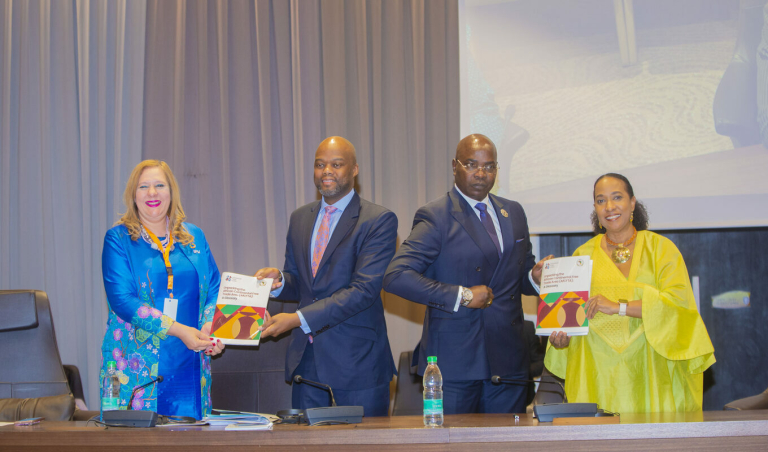
Exercitation ullamco laboris nis aliquip sed conseqrure dolorn repreh deris ptate velit ecepteur duis.
Exercitation ullamco laboris nis aliquip sed conseqrure dolorn repreh deris ptate velit ecepteur duis.
 Publication
Publication
The African Continental Free Trade Area (AfCFTA) glossary serves as a crucial tool designed to demystify the legal intricacies of the AfCFTA agreement specifically for small and medium-sized enterprises (MSMEs). By breaking down nearly 100 complex legal terms into straightforward and accessible language, this initiative aims to create a more business-friendly environment within the AfCFTA framework. Through this resource, businesses can better understand the Agreement, empowering them to navigate trade complexities more effectively and engage in cross-border transactions with greater confidence within the African market.
The AfCFTA glossary is deeply embedded in the empowerment of MSMEs, which represent the backbone of African economies. The publication acknowledges the pivotal role these enterprises play in driving inclusive growth, job creation, and poverty alleviation. Given the complexities associated with international trade agreements, there’s an expressed need to ensure that MSMEs can navigate the AfCFTA’s provisions effectively. Hence, the publication acts as a primer, decrypting legal jargon and highlighting MSME-relevant provisions to foster their active participation and benefit from the Agreement.
The study focuses on the tariffs offered by member states of the AfCFTA and emphasizes the importance of a comprehensive consultative process that takes into account the human rights implications. It highlights the significance of integrating a human rights perspective into the development and implementation of trade strategies and provides recommendations to ensure fair and inclusive decision-making processes.
The study also provides case studies on the impact of tariff liberalization on the right to food and an adequate standard of living for small-scale farmers in Egypt and the ECOWAS region, particularly in the dairy sector. The AfCFTA tariff structure intends to liberalize trade while taking into account the diverse economic landscapes of its State Parties.
Authored by

Mr. Guillaume Gérout is a trade policy specialist, notably on intra-African trade and global agreements, contributing significantly to the AfCFTA negotiations and collaborating with major international and governmental organisations.

Mrs. Anaïs Cren-Larvor is a specialized junior policy analyst with expertise in the political economy of African Free Trade Agreements (FTAs), focusing on negotiation, implementation, sustainability, and their implications on trade and gender, and environment.

